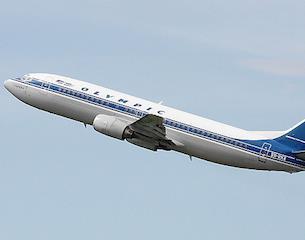
The Supreme Court has ruled that Olympic Airlines is unable to enter the Pension Protection Fund (PPF) because it did not have an establishment in the UK during its insolvency proceedings.
The case, Trustees of the Olympic Airlines SA Pension and Life Assurance Scheme (Appellants) v Olympic Airlines, relates to the airline’s insolvency in 2009. It entered insolvency in Greece and despite having UK-based operations and a UK defined benefit (DB) pension scheme, it did not have a subsidiary firm in the UK.
The organisation first wound up by a court in Athens, Greece, on 2 October 2009 at which time Olympic Airlines was considered unlikely ti make good on its pensions deficit.
However, members of the scheme were eligible for compensation, payable from the date on which a qualifying insolvency event occurred.
There were two possible dates for this to occur: 20 July 2010, when the trustees of the pension scheme presented winding-up petitions in the UK, and on 2 October 2014 on the fifth anniversary of the start of the main liquidation proceedings in Greece.
Under European insolvency regulations, EU member states can start secondary proceedings if there is a debt owed to a resident of that state.
On 20 July 2010, UK employees made the appeal to bring secondary insolvency proceedings in the UK so that their benefits would fall under the administration of the PPF.
The only question for the courts was therefore whether Olympic Airlines had an ‘establishment’ in the UK on 20 July 2010 entitling the English court to make a winding-up order, so that it can be said that a qualifying insolvency event occurred on that date.
In the first instance, the judge at the High Court held that the organisation’s activities by 20 July 2010 constituted “non-transitory economic activities”; therefore the airline had an establishment in the UK.
The Court of Appeal disagreed and held that the remaining activity consisted only in the winding up of the organisation’s affairs, which was not enough to give the court jurisdiction to make the order.
The trustees of the pension scheme appealed the Court of Appeal’s decision.
But the Supreme Court dismissed the appeal. Supreme Court judge Lord Sumption held that the regulation’s definition of establishment, envisages a fixed place of business and business activity carried on there consisting in dealings with third parties, and not merely acts of internal administration.
By 20 July, Olympic Airlines had closed all its UK offices and was not carrying our any business activity, so it was ruled it did not have an establishment in the UK at that point meaning members of its pension scheme could not secure benefits from the PPF.
Although regulations became law in April 2014 to make amendments that would permit the scheme to enter the PPF, these were not broad enough to catch any other schemes and took effect five years after the start of the insolvency.
This ruling, however, provides little clarity on the future outcome of similar potential insolvencies of EU parent firms with UK operations but no legal subsidiary.
Devi Shah, a restructuring partner at international law firm Mayer Brown, said: “The guidance will have broad implications for pension schemes, insolvency practitioners and creditors alike.
“The ruling will help creditors and insolvency professionals by providing greater clarity at Supreme Court level on what will be required for EU companies with a UK presence to enter into insolvency proceedings in the UK.
“Where a company is winding down its affairs, it will need to show that it is still trading at least to a degree, and once it has ceased to trade the opportunity for insolvency proceedings may be lost.”











